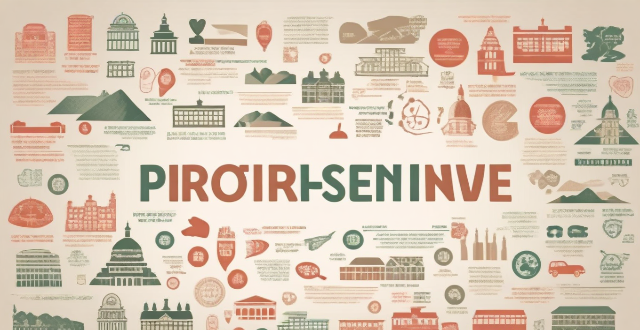The provided text offers a comprehensive guide for women to research the safety of a destination before traveling. The steps include online research such as checking government travel advisories and joining travel forums, seeking professional advice from travel agents and security experts, planning ahead by making copies of important documents and informing someone about your itinerary, packing smart with items like personal alarms and door stop alarms, being prepared on the ground by dressing appropriately and learning basic phrases in the local language, and trusting your instincts to avoid potentially dangerous situations. By following these steps, women can enhance their safety while traveling and be better informed about potential risks.

Steps for Women to Research the Safety of a Destination Before Traveling
Traveling is an exciting adventure, but it's crucial to ensure your safety, especially as a woman. Here's a comprehensive guide on how to research the safety of a destination before you embark on your journey.
I. Online Research
A. Read Travel Advisories
- Check Government Websites: Visit the websites of your country's foreign affairs department or travel advisory office. They often provide up-to-date information about the security situation in different countries.
- Look for Specific Advice for Women: Some advisories may have special sections with advice tailored for women travelers.
B. Join Travel Forums and Groups
- Engage in Online Communities: Websites like TripAdvisor and Lonely Planet have forums where you can ask questions and read experiences from other travelers.
- Seek Recommendations: Ask for recommendations from female travelers who have visited your intended destination.
C. Use Social Media
- Connect with Locals: Try to connect with local women through social media platforms to get a genuine sense of the place.
- Search for Hashtags: Look up hashtags related to your destination to see recent posts and gather insights.
II. Seek Professional Advice
A. Consult with a Travel Agent
- Find a Specialist: Look for travel agents who specialize in women-only tours or trips to your destination.
- Ask About Safety Measures: Inquire about the safety measures they have in place for their clients.
B. Talk to a Security Expert
- Hire a Consultant: If you're traveling to a high-risk area, consider hiring a security consultant for personalized advice.
- Attend a Workshop: Attend workshops or seminars that focus on safety while traveling.
III. Plan Ahead
A. Make Copies of Important Documents
- Have a Digital Backup: Store scanned copies of your passport, visa, and other important documents in a secure online location.
- Keep a Physical Copy: Carry a physical copy of these documents separate from the originals.
B. Inform Someone About Your Itinerary
- Stay in Touch: Keep a trusted friend or family member updated about your whereabouts and schedule.
- Use a Tracking App: Consider using apps that allow someone to track your location in case of an emergency.
IV. Pack Smart
A. Carry a Safety Alarm
- Personal Alarm: Pack a personal alarm that can draw attention in dangerous situations.
- Whistle: A whistle can also be an effective way to signal for help.
B. Bring a Door Stop Alarm
- Portable Security: A door stop alarm can provide added security if you're staying in uncertain accommodations.
V. Be Prepared on the Ground
A. Dress Appropriately
- Research Local Customs: Find out what's appropriate to wear in public spaces to avoid unwanted attention.
- Blend In: Where possible, try to dress in a way that helps you blend in with local women.
B. Learn Basic Phrases in the Local Language
- Essential Vocabulary: Knowing how to say "no," "help," and "police" in the local language can be very useful.
- Carry a Small Phrasebook: Keep a small phrasebook or language app on your phone for reference.
VI. Trust Your Instincts
A. Listen to Your Gut Feeling
- Be Aware: If something feels off, trust your instincts and remove yourself from the situation.
- Avoid Isolation: Try to stay in populated areas and avoid isolated places, especially at night.
By following these steps, you can significantly enhance your safety while traveling. Remember, preparation is key, and being informed is your best defense against potential risks. Bon voyage!